— Since this year, for the first time in our country, the "makhallabay" system has been launched, the position of "assistant to the khokim" has been introduced in all makhallas. How do you understand the nature of this post?
— I'm confident that with the introduction of the post of "assistant to the khokim" in the makhallas, the most effective institution was created for direct appeals of the population, especially those living in makhallas remote from the district center, who have problems in the family as well as, if necessary, to study problems on site with the involvement of appropriate authorized persons. By this system, work is carried out on the inventory of empty, inefficient buildings and lands on the territory of the makhalla, making proposals on allocating them for the use of business entities, employment of unemployed people living in the makhalla at established enterprises, thereby bringing material income to families. In short, I consider the introduction of this position as one of the strategic reforms initiated by our President in the interests of the local population, which in the near future will give effective results.
— Tell us more about yourself. How did you come to this position, what did you do, where did you work before? How do you solve new tasks?
— I, Husen Fayzievich Amonov, was born on July 6, 1982 in the makhalla "Buston" of the Kyzyltepa district in an intelligent family. First I graduated from the district professional college, then from the Tashkent State University of Economics in the field of "Finance". Started my career in 2004 as a specialist in the Credit Planning Department at the Navoi regional branch of the RJSB "Gallabank" and worked in various areas of the banking system. Since 2014, I've been operating as the manager of the Navoi regional branch of the JSB "QQB", and since March 2021 as a manager of the Navoi regional branch of the JSB "Mikrokreditbank". In the first years of my work as a bank manager, that is, in 2014 and 2019, I was nominated to the Navoi City Council of People's Deputies from UzLiDeP and was elected a deputy of the city council. In 2016-2018, I studied at the Academy of Public Administration under the President of the Republic of Uzbekistan and received a Master's degree. In addition, in 2018, I managed to get an international certificate from the Shanghai University of the People's Republic of China in my specialty. Since this year I have been working as an assistant to the khokim in the makhalla "Uzbekiston" in the Karmanin district, where I live myself.
From the day I assumed the post of assistant to the khokim, first of all, I got to know the chairman of the makhalla, his deputy for women's affairs, the youth leader, and then outlined the initial plans.
In particular, a list of the unemployed was formed by conducting a census of each family living in the makhalla, information about the presence of empty buildings and land in the makhalla was clarified. For the purpose of their rational use, with the participation of officials of the district khokimiyat and on the basis of promising business plans of private sector managers, work has begun on transferring them to the unemployed population for business organization on a competitive basis.
— The makhallabai system provides for close cooperation of state authorities at all levels. How does this interaction work? Do you feel that your activities in the makhalla are supported by the district, the region and the Republic?
— Exactly. In Chapter 6 of the Regulation, developed on the basis of the Resolution of the Cabinet of Ministers #152 dated March 19, 2021, provides for interaction with the competent state bodies when implementing the makhallabay work system. In particular, the JSB "Turonbank" was attached to the Navoi region, and today cooperation is in full swing. When working with citizens listed in the "Iron Notebook", "Women Notebook" and "Youth Notebook", close ties have been established with the district Department for Makhalla and Family Support, the Women's Public Council, the Makhalla Women's Advisory Council, the district department of the Agency for Youth Affairs and the Employment Promotion Center.
As part of the development and implementation of new projects, active cooperation has been established with district commercial banks, the district center for entrepreneurship support of the Chamber of Commerce and Industry and the district reception of the Prime Minister of the Republic of Uzbekistan to consider the appeals of entrepreneurs as well as in cases of teaching the profession and entrepreneurship to the population with the district Employment Promotion Center, the Department of Economic Development and Poverty Reduction, the District Business Support Center of the Chamber of Commerce and Industry, makhalla educational institutions, non-governmental and non-profit educational centers, vocational schools, colleges and technical schools, educational centers in the vicinity.
In addition, in order to bring the makhalla's activities to a new level, working groups consisting of representatives of the republic were attached to our makhalla to study our activities in a timely manner and make appropriate recommendations and proposals. After discussing the problems existing on the territory of the makhalla, their solution is provided at the district, regional and republican levels, depending on the relevance and possibility of solving the issue.
— How do you communicate with the population, are there many appeals? What issues do people mostly address? How are the problems of makhalla residents solved?
— To the date, some representatives of the families who were included in the "Iron Notebook", "Women Notebook" and "Youth Notebook" have received jobs. To find out how they were excluded from the notebooks, and to make sure that they really found their way in life, I've studied their families and lifestyle more closely during the makhalla surveys.
From the very first day of my work as an assistant to the khokim, I've tried to establish strong relations with representatives of the makhalla based on the principles of "being among the people", "listening to their problems", "sharing their concerns" and "solving problems on site".
In the course of the survey, I was convinced that any question can be solved in the house where it arose. For example, to start a business, many of our citizens lack the determination and courage, they do not fully use the opportunities created by the state for many years, and as a result they are unable to earn a living and ensure the well-being of the family. As a result of establishing the activities of the assistants to the khokims in the very grassroots system — the makhalla institutions — we closely cooperate with citizens who are afraid to start their own business, support their plans, enrich their ideas and, if necessary, help to gain confidence in the future.
In order to establish healthy competition on the territory of the makhalla, strengthen the traditions of mentoring, first of all, we try to make friends with labor veterans and elders who have gained a high reputation over the years of their work, as well as with private sector leaders who are now successfully continuing their work. We exchange opinions with them about the reforms being carried out in the makhalla and, if necessary, attach them to family members starting their business activities.
As for the appeals, after carefully listening to the citizen's appeal (about issuing a bank loan, low gas pressure, frequent power outages, etc.), we attract a specialist of that specific field, and then the issue is resolved together with him. I also believe that a citizen's appeal should, if possible, be considered at his home. This gives me the opportunity to see with my own eyes the living conditions of people, their material and spiritual capabilities and helps me to take the right direction in working with them. If you delve even deeper into the family of ordinary locals, you will understand how things really are, which family has what capabilities and abilities. And, of course, the daily coverage of positive changes in the makhalla on my Telegram channel brings its results in campaigning for the involvement of citizens in entrepreneurship.
Based on the available indicators as well as taking into account the opinions of specialists and citizens, I have identified mainly lemon growing and service as the drivers of the development of our makhalla. At the beginning of my activity, after consulting with family members interested in greenhouse farming, I put forward a personal initiative to create a cluster of lemonary "Jahon Agro". As a result, it is planned to build a greenhouse and grow lemon seedlings on 0.5 acres of empty land plots of 500 families. In each (500) household, 10 (5000) lemon seedlings will be planted, yielding 100 tons of harvest twice a year. And, most importantly, we will be able to provide employment for representatives of unemployed families.
In addition, in order to create a modern sewing and manufacturing workshop that manufactures materials used in other industries (fabrics, yarn, natural and artificial leather), practical work has already been established with our close partner LLC "Baht Textile". At the same time, greenhouses have been built in 12 households at the expense of concessional loans from commercial banks allocated to 64 households.
In addition, the "Mehr-Sakhovat" Foundation provides financial assistance to the poor and needy segments of the population. In particular, families who want to work, but cannot find the means to start their own business, receive loans and subsidies under our guarantee and support. Naturally, this opportunity creates the basis for improving the welfare of the population, developing entrepreneurship, eradicating poverty by creating a stable source of income in families. Over the past period, 82 unemployed citizens of the makhalla have become self-employed due to loans and land allocation, 42 of them are young people. 28 people were employed permanently. 12 new enterprises have been established, 92 unemployed citizens have been employed and new jobs have been created.
— Tell us about the results of the conducted research and surveys. What are the criteria for identifying low-income families? What is the focus on?
— As a result of door-to-door visits in the makhalla "Uzbekiston", it was found that 2007 families live in 1557 households, and the total number of citizens is 5539 people. After conducting an absolute census of families, I divided the population into 4 categories, including: the first category — low-income families — 7 (0.4%); the second category — households with a stable income who want to have additional income — 476 (30.6%); the third category — households with patients who have lost a breadwinner and need social protection — 58 (3.7%); the fourth category is households with good economic condition — 1016 (65.3%).
— Can you describe the current state of poverty in your makhalla?
— The makhalla that I serve consists mainly of houses with private plots ranging in size from 2 to 10 acres of land on which people can engage in agricultural activities. It was found that most of the population uses household plots once a year for growing melons. There are, of course, families who have built greenhouses, established animal husbandry, poultry farming.
There are almost no needy and poor families in our makhalla.
Relatively speaking, members of low-income families are people who could not take advantage of their opportunities or take the first step because of fear of taking risks when opening a profitable business. I think it would be useful to motivate the majority of residents of the makhalla by holding master classes with the participation of representatives of different spheres who have achieved high results.
— What are the main problems and causes of poverty in the makhalla? Please, list them. What else do you think needs to be done to solve the problems?
— In my opinion purely based on my personal experience in this makhalla, I do not see any reason or factor that will lead to poverty here in the future. It is only necessary to increase the legal literacy of citizens in the use of preferential loans. In other words, to paraphrase a well-known saying, you just need to tell people how to fish, and this will definitely give good results.
— What innovative methods have you used in your work to support poor households? Can you tell us more about the results of working with these families?
— Since the makhalla "Uzbekiston" in the district borders with the city of Navoi, residents of the makhalla have more chances to bring material income to their family than other makhallas of the district by working in the city. Firstly, the question of what factors caused families to fall below the poverty line is initially being studied. Secondly, in cooperation with representatives of the makhalla and aksakals, as well as with leaders of the private sector, depending on the education, age and physical abilities of members of these families, they are involved in profitable work through guardianship. In addition, a targeted study of poor families or families with a high risk of falling into poverty is carried out, after which proposals are made, first of all, to the leadership of the labor collective where they work. At the same time, special attention is paid to the issue of establishing decent wages for them and providing additional "social packages" and paying for additional working time in connection with the expansion of production opportunities.
— How much has the attitude towards your work in the makhalla changed, has the confidence of the population increased?
— During my activity as an assistant to the khokim in the territory of the makhalla, we helped in providing, in particular, chickens to one household, small cattle to another, a motor cultivator to one resident as well as 49 women of various types of sewing machines for self-employment. We organized the distribution of 3 hectares of land released from cotton crops to 15 unemployed residents on the basis of an auction. Due to the high demand of the population for cash, the JSB "Mikrokreditbank" installed 2 ATMs (HUMO and Uzcard) in the central territory of the makhalla. On the basis of handicrafts in the field of patchwork, jobs were created for 12 women, a sewing workshop was organized. Taking into account the fact that the youth of the makhalla spends their free time ineffectively, a mini-stadium with turf was launched.
It is quite obivous that our population sees and realizes the ongoing reforms and what we are doing, trust is growing.
We started by focusing on households where the standard of living is relatively heavier. Only in this way, after some time, when our work begins to bear fruit, I am sure that the local population will be convinced of the accuracy of the ongoing reforms aimed at further improving the welfare of our people, the rapid development of entrepreneurship and the formation of an active civil society.
In most cases, local residents come to my office in search of solutions to their problems, we listen carefully to them, solve problems in a positive way without much effort and hassle. It would not be an exaggeration to say that the joy reflected in their sincere words and eyes after solving problems causes me a pleasant excitement, and this feeling increases my enthusiasm for my task.
Jamoliddin Turdimov, CERR
In country / Assistants to the khokims are among people
"Economic Review" Journal №7/2022

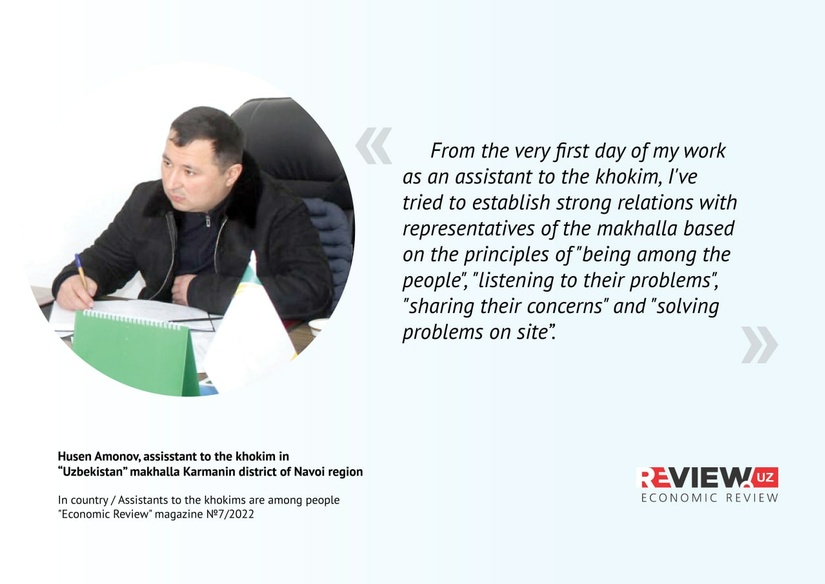
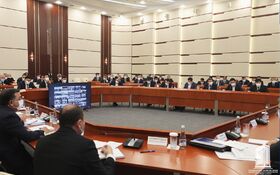
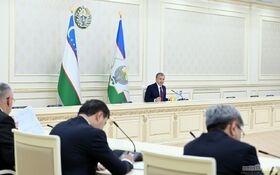
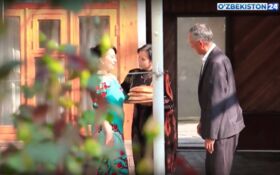
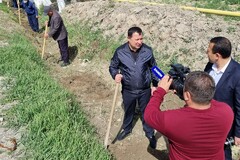
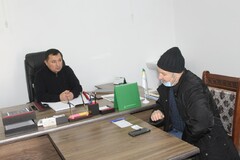
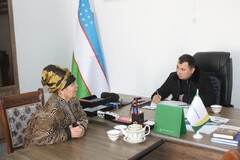



















leave a comment